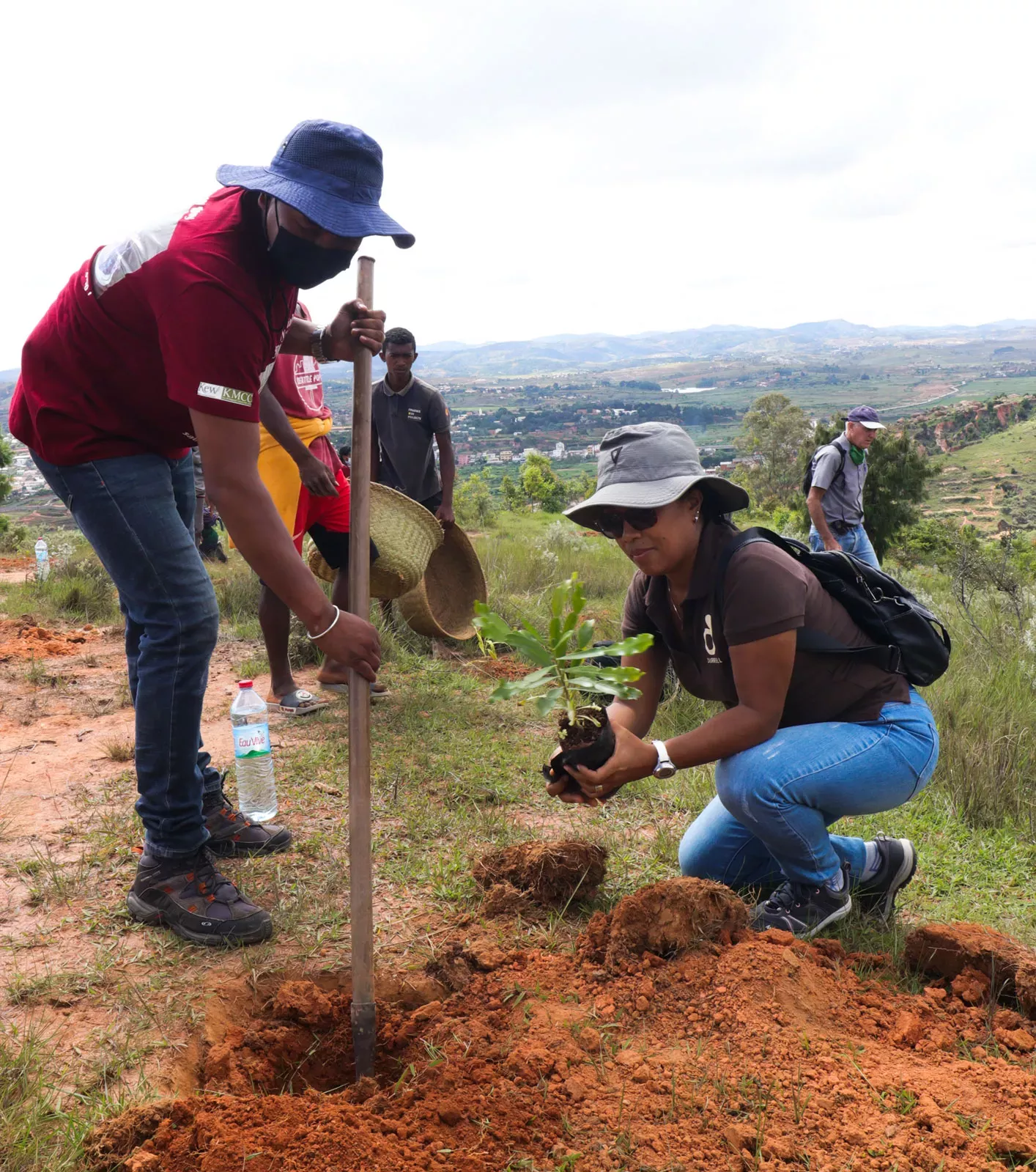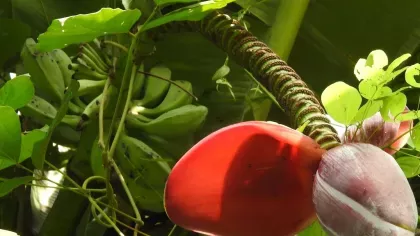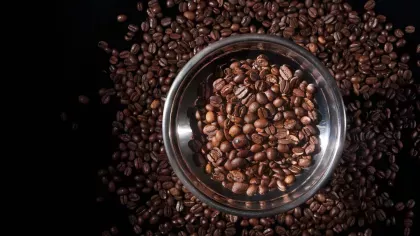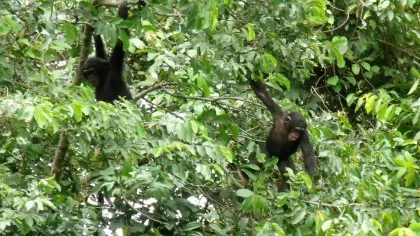31 March 2021
Making Madagascar green again
Kew's team in Madagascar have been planting trees with the British Ambassador to Madagascar and Durrell Wildlife Conservation Trust.

Last month, British Ambassador to Madagascar David Ashley and Durrell Wildlife Conservation Trust visited Kew’s Madagascan office in Ambodivoanjo, in the country’s capital Antananarivo.
The visit was an opportunity for Kew’s Madagascan team to highlight the challenge of conservation in Madagascar, one of the world’s hottest biodiversity hotspots.
It was also a chance to show how Kew could contribute expertise in conserving and managing biodiversity, while supporting communities through research on sustainable agriculture, climate resilience and the restoration of functional forests and other ecosystems.
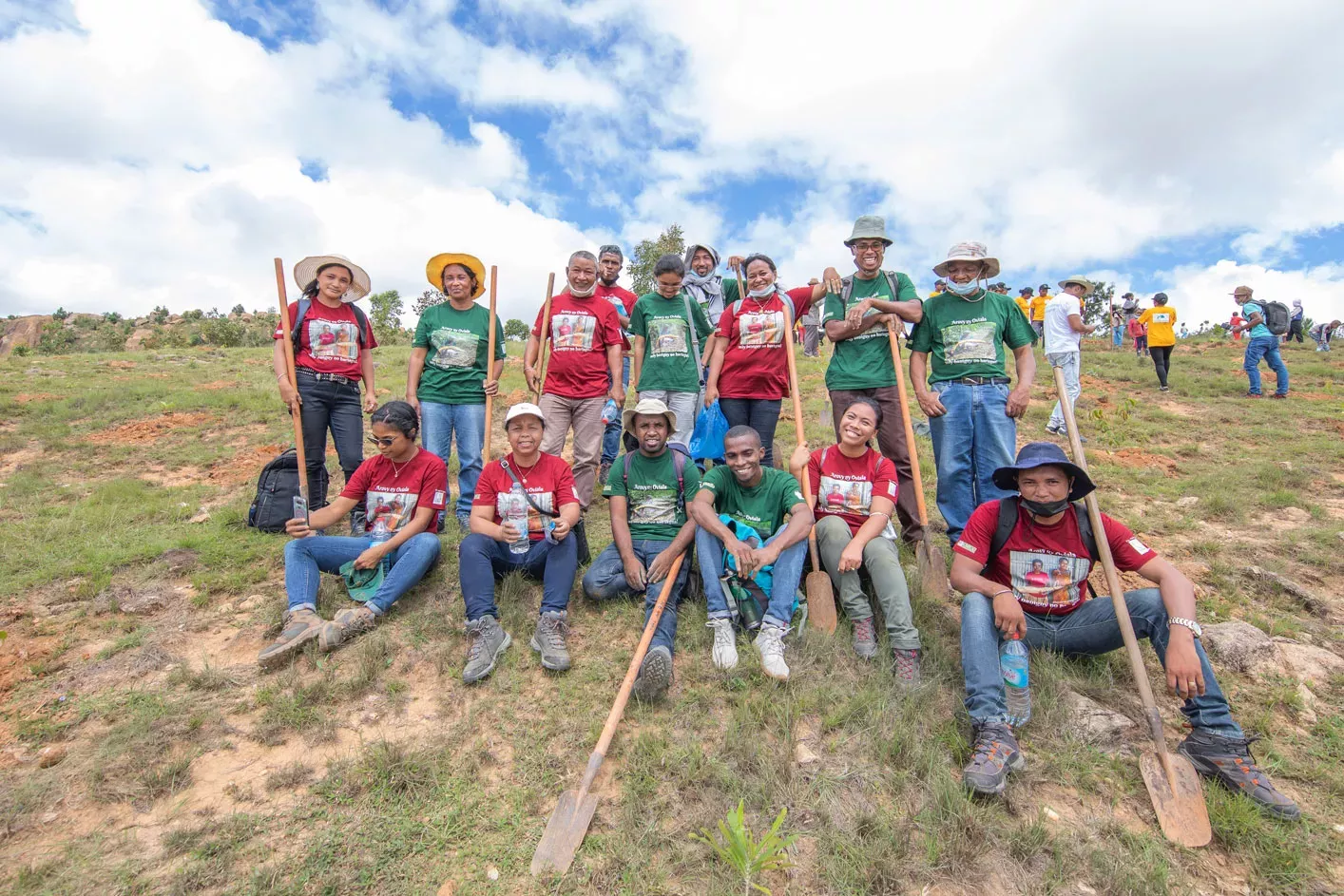
During the visit, the team, lead by Dr Hélène Ralimanana, presented Kew’s work in Madagascar over the last 35 years since 1986.
The group later travelled to Sisaony forest in Ambatofotsy to take part in a tree planting session with a local primary school and the Robens company, which manage the forest station.
Over 400 seedlings of native plant species (Khaya madagascariensis, Zanthoxylum madagascarienses and Eugenia sakalavarum) were planted.
To mark his visit to the site, David Ashley also planted a seedling of Adasonia suarezensis, one of the endemic species of Malagasy baobab, in the school garden.

Dr Hélène Ralimanana said:
“This is the start of a strong collaboration between Kew, Durrell and the British Ambassador. We are looking to develop a number of joint activities to benefit Madagascar’s biodiversity and, together, help the Malagasy government achieve its goal of making Madagascar green again.”
Dr Colin Clubbe, Head of Kew’s Conservation Science Department said:
“We're really proud of our team in Madagascar whose work is having a really positive impact on the future outlook for Madagascar’s unique flora. We are very grateful for the continued support we receive from the British Embassy and all the staff who are championing the work of British NGOs in Madagascar in support of conservation and improving livelihoods for the Malagasy people through plant-based solutions.”
